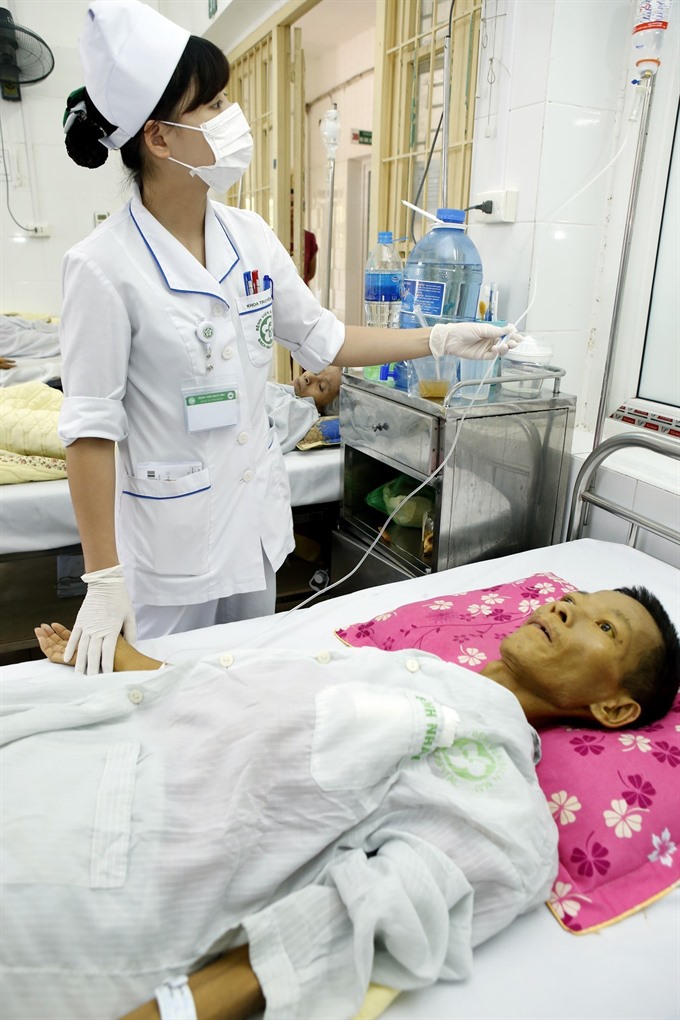 Society
Society

Health experts have called on Health Ministry to add direct-acting antiviral Agents (DAAs) into list of drugs that public health insurance covers so that patients with Hepatitis C would be treated more effectively.
 |
| A hepatitis patient receives treatment at Bạch Mai Hospital. — VNA/VNS Photo Dương Ngọc |
HÀ NỘI — Health experts have called on the Health Ministry to add direct-acting antiviral Agents (DAAs) into list of drugs that public health insurance covers so patients with Hepatitis C are treated more effectively.
DAAs or new combinations of drugs directly target the hepatitis C virus in different ways to stop it making copies of itself. DAAs promise shorter treatment times, much higher cure rates and fewer side effects.
Assistance Professor Dr Đỗ Duy Cường, head of Infection Department under Bạch Mai Hospital, spoke about the new medicine yesterday at a meeting marking World Hepatitis Day (July 28).
Cường said that currently, there were 50 types of DAAs and the cure rate reached up to 95 per cent.
However, cost treatment using DAAs was high while public health insurance participants did not have health insurance pay for the medicine, Cường said, adding that 90 per cent of patients with Hepatitis C could not receive DAAs treatment.
“The Health Ministry should speed up allowing the medicines to be circulated in Việt Nam and public health insurance should co-pay it with the health insurance fund and patients at a reasonable proportion,” Cường said.
Hepatitis C is a “silent killer” because it has no obvious symptoms but can be extremely dangerous and, in some cases, life threatening, according to the Vietnam Association for the Study of Liver Diseases (VLBA).
The hepatitis C virus (HCV) can be transmitted by blood, tooth extraction and unprotected sex, and the number of infected people in the country is increasing. In the early stages of the disease, most hepatitis C patients have no symptoms and it does not affect their, so most people do not realise when they are infected, according to experts.
A patient’s health can be severely affected when HCV transitions to cirrhosis and liver cancer. Patients at this stage have anorexia, indigestion, swelling in the legs, muscle aches, cramps, numbness, itching, dizziness, fatigue and trembling hands. Severe complications such as gastrointestinal bleeding, fluid retention in the abdomen and drowsiness can occur.
Assistance Professor Dr Nguyễn Quốc Anh, Bạch Mai Hospital director, said there were about 10 million people carrying Hepatitis B and nearly 1 million people carrying Hepatitis C in the country.
“About 10-15 per cent of the population was infected with Hepatitis B. The disease can develop quickly, causing liver failure and liver cancer,” Quốc Anh said.
Despite the fact that there was Hepatitis B a vaccine, the disease was still burdening both the health sector and patients because of life-long treatment, he said. — VNS




